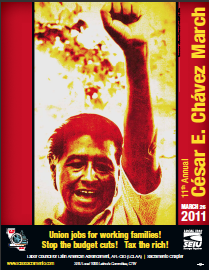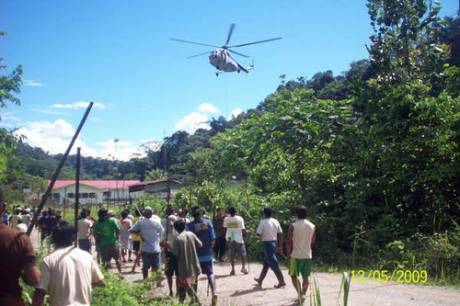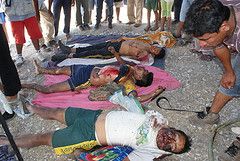Please sign up for our email list
Progressive Dems of America
Democracy For America
Get Involved
- About Us
- Create Website Account
- Join E-mail List
- Contact Us
- Contact your Federal representatives (Senate & House)
- Contact your State Senators and Assemblypersons
- Contact the Sacramento County Supervisors
- Contact the Sacramento City Council
- Contact the Sac Bee
- How to Get Your News in the Bee
- Media Addresses: Newspapers, TV, Radio, Mags
- Newslink list of all CA Newspapers
- Volunteer
-
Making Big Banners
- Register to Vote
- Local Events
-
Dem Party Headquarters Info
Iraq & Afghanistan Occupations
- Sacramento Physicians for Social Responsibility
- Resolution Peace.org
- Iraq: The Human Cost
- Iraq Moratorium.org
- StopBlackwater.net
- McGovern's HR 746
- Woolsey's HR 508
- US Labor Against War
- Camp Casey Peace Institute
- Vote Us Out of Iraq
- No War, No Warming
- Appeal For Redress.org
- Iraq Veterans Memorial
- Iraq Coalition Casualty Count
- Thank You Lt. Watada
- Teach Peace.com
- Freedom From War.org
- Prog. Caucus Iraq Withdrawal Paper
- After Downing Street.org
- John Conyers.com
- Dahr Jamail's Iraq Dispatches
- Gold Star Families for Peace
- Operation Truth: OpTruth.org
- Military Families Speak Out
- AntiWar.com
- ElectronicIraq.net
- Just Foreign Policy.org
- Veterans Against The Iraq War
- Bring 'em Home Now music video
- CLICK HERE FOR ARCHIVED LINKS
- CLICK HERE FOR THE LATEST NEWS
Cost of the War in Iraq
(JavaScript Error)

Current Terror Alert Level:
Election Integrity

- Brad Blog
- VelvetRevolution.us
- Voters Unite.org
- Election Defense Alliance.org
- VideoTheVote.org
- CountedAsCast.com
- Black Box Voting.org
- ElectionProtection365.org
- UPDATES on San Diego Dist 50 Election Problems
- GAO Report on 2004 Electoral Fraud
- Debra Bowen's Electoral Reform Legislation
- Clean Money / Public Financing of Elections
- Open Voting.org
- California Election Protection Network
- Equal Justice Foundation
- Vote411.org
- VoterGate Film
- RFK Jr - Was The 2004 Election Stolen
- How to Steal an Election
- Follow the Money.org
- Open Secrets.org
- US Count Votes.org / National Election Archive
- Californians for Electoral Reform
- Election Reform/Protection website
- CLICK HERE FOR ARCHIVED LINKS
- CLICK HERE FOR MORE ARTICLES
Other great sites
- Common Dreams
- TruthOut.org
- After Downing Street.org
- FireDogLake
- BradBlog
- CA Progress Report
- Raw Story
- Crooks And Liars
- Axis of Justice
- David Sirota
- Atrios / Eschaton
- Framshop Is Open
- AMERICAblog
- Huffington Post
- Liberal Oasis
- The Left Coaster
- MyDD
- DailyKos
- Democratic Underground
-
Tom Tomorrow
LOCAL SITES
- Sacramento Area Peace Action
- SacIndyMedia.org
-
Humor Times.com

Recent blog posts
- Science Friday: Circadian Rhythm | Cancer Protein's Surprising Role as Memory Regulator | Hologram Method Used to Study Neurons
- Elizabeth Warren on Debt Crisis, Fair Taxation
- Statement by C. T. Weber on the Execution of Troy Davis
- Fighting Global Poverty With Science
- Last Year's Single Payer Summit Post 35 Years of Reaganomics
- Salazar admits peripheral canal could lead to more water exports
- The Whole World is Watching
- Delta advocates say Salazar is 'badly mistaken' about canal plan
- Tomorrow, Georgia Murders Troy Davis
- "Entitlements"
Upcoming Events
-
Sun, 10/02/2011 - 5:30pm
-
Fri, 10/07/2011 - 4:30pm
-
Sun, 10/09/2011 - 2:00pm
-
Sat, 10/15/2011 - 7:00pm
We all need a little HUMOR
Healthcare For All
- Michael Moore.com
- Michael Moore speaks at Healthcare Hearing at the Capitol
- DFA SiCKO "Health Care for America" petition
- State Senator Sheila Kuehl's SB 840 - CA Universal Healthcare Act
-
Petition to Support Sheila Kuehl's SB 840

- Watch the California OneCare video
- Universal Healthcare Teach-in : July 7th
- HR 676 - Conyers/Kucinich - Expanded & Improved Medicare For All
-
PDA Petition to Support Conyers' HR 676

- Video : Michael Moore in Support of HR 676
- California Nurses Association
- Health Care for All
- OneCareNow
- SB 840 - Arguments Against & Responses
- Tell the Governor to Sign SB 840, NOW!!
- Take Action to Support SB 840
- Learn more at SB840.org
Middle East Conflict


-
PDA Statement on call for an end to Israeli Occupation
HEADLINES plus
- AFP World News
- Al-Ahram
- AntiWar.com
- Arab American News.com
- BBC News
- Common Dreams.org
- CounterPunch.org
- FAIR.org
- The Guardian UK
- Haaretz.com
- The Independent UK
- IPS News
- New America Media.org
- Palestine Chronicle
- Truthout.org
- Washington Post
-
What Really Happened.com
Anti-Occupation sites
- US Campaign to End the Israeli Occupation
- Electronic Intifada.net
- Electronic Intifada - Lebanon
-
Jewish Voice for Peace

-
Gush Shalom

- If Americans Knew.org
- Institute for Middle East Undertanding.net
- Israeli Committee Against House Demolitions
- Israeli Information Center for Human Rights in the Occupied Territories
- Amnesty International
- Association for Civil Rights in Israel
- Arab Association for Human Rights
- MIFTAH.org
- Physicians for Human Rights
- Rabbis for Human Rights
- Palestine Monitor.org
- Barak's "Generous Offer"
- Click Here for more articles


 March begins at:
March begins at:



 their ranks and up to 400 disappeared. According to witnesses, the military burned bodies and threw them into the river to hide the massacre, and also took prisoners among the wounded in the hospitals. In any case, what is certain is that the government sent the armed forces to evict a peaceful protest that had been going on for 57 days in the jungle regions of five departments: Amazonas, Cusco, Loreto, San Martin, and Ucayali.
their ranks and up to 400 disappeared. According to witnesses, the military burned bodies and threw them into the river to hide the massacre, and also took prisoners among the wounded in the hospitals. In any case, what is certain is that the government sent the armed forces to evict a peaceful protest that had been going on for 57 days in the jungle regions of five departments: Amazonas, Cusco, Loreto, San Martin, and Ucayali. The Inter-American Human Rights Commission (CIDH), part of the Organization of American States, condemned the violent acts on June 8 and reminded the Peruvian government of its obligation to clear up the facts and to compensate for the consequences and called on both sides to promote a process of dialogue.1 On June 9, the National Coordination of Human Rights announced that it found a series of irregularities and possible human rights violations in the Bagua area. It denounced the government's refusal to divulge what police are in charge of the investigation of the events, and expressed concern for the situation of 25 detained at the El Milagro base and the 99 arrested since a curfew was imposed in Bagua.2
The Inter-American Human Rights Commission (CIDH), part of the Organization of American States, condemned the violent acts on June 8 and reminded the Peruvian government of its obligation to clear up the facts and to compensate for the consequences and called on both sides to promote a process of dialogue.1 On June 9, the National Coordination of Human Rights announced that it found a series of irregularities and possible human rights violations in the Bagua area. It denounced the government's refusal to divulge what police are in charge of the investigation of the events, and expressed concern for the situation of 25 detained at the El Milagro base and the 99 arrested since a curfew was imposed in Bagua.2











